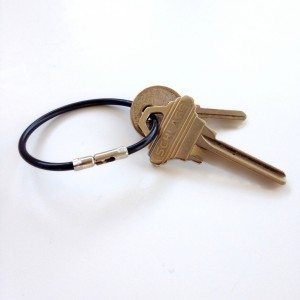 Key rings have been around for quite a while and a whole lot of us carry them in our pocket or purse every day, so there can’t be a whole lot new with them, right? Not so fast, gadget fan! Have a look at Flex-O-Loc. It’s a short length of plastic-coated cable that can hold your keys, small tools and other tidbits. Yes, there are other cable-type keyrings on the market, but what makes Flex-O-Loc unique is its quick, easy, secure locking mechanism—basically, you flex it, and it locks. It’s all in the name! Let’s check it out. Gadget on!
Key rings have been around for quite a while and a whole lot of us carry them in our pocket or purse every day, so there can’t be a whole lot new with them, right? Not so fast, gadget fan! Have a look at Flex-O-Loc. It’s a short length of plastic-coated cable that can hold your keys, small tools and other tidbits. Yes, there are other cable-type keyrings on the market, but what makes Flex-O-Loc unique is its quick, easy, secure locking mechanism—basically, you flex it, and it locks. It’s all in the name! Let’s check it out. Gadget on!
Click any image to enlarge.
Background
I’d been on the hunt for a cable-type key ring for some time. I found one at a big-box hardware store on a rack near the key section. It had a closure that threaded closed. It did the job OK, but I wasn’t a big fan of the threaded closure, which had a tendency to unscrew itself over time while carrying it in my pocket or ruck. Not good! A while later, while doing some online searching for alternatives, I stumbled on Flex-O-Loc, which appeared to have a unique locking mechanism. I kept my eye out at the hardware stores in my area and finally found one in black, so I picked one up for less than $5. Note that Flex-O-Loc is manufactured by Lucky Line, but they do not appear to offer Flex-O-Loc for retail sale online. However, there are online retailers where you can find it, but your best bet is probably to stop by your local big-box or mom-and-pop hardware store and look in the key section like I did.
Packaging
Flex-O-Loc’s packaging is a pretty standard cardboard backing with shrink wrap.
Specs
Per the Lucky Line site:
- Strong, flexible, corrosion-resistant aircraft cable core
- Nylon coating
- Length – 5 inches (forms a loop about 1 5/8″ in diameter when closed)
- Location of Manufacture – USA
Options
Flex-O-Loc is available in the following colors:
- Clear
- Black
- Blue
- Teal
- Magenta
- Red
Features & Performance
Above, a photo of the Flex-O-Loc’s patented “ball knob and socket closure.” It’s a ball on a post that fits into a matching socket on the opposite end, slides down a channel, then locks in place. After releasing it, the tension from the cable keeps it locked.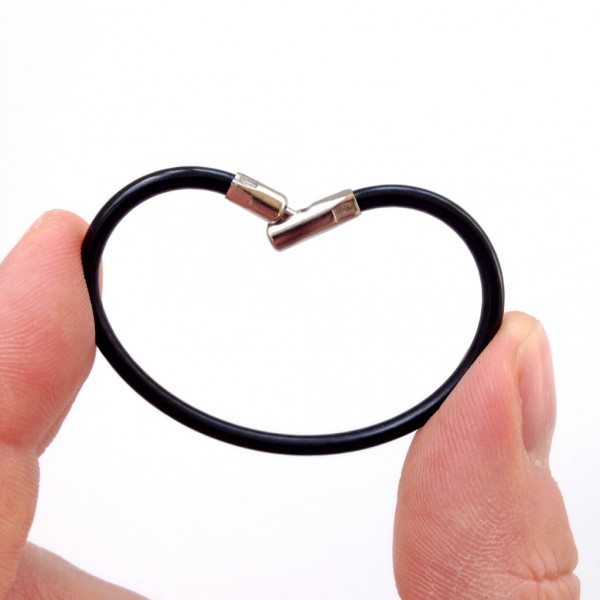
To unlock Flex-O-Loc, squeeze sides of the cable so that the ends curl into the center, forming it into a sort of heart shape. This slides the ball back up the channel and releases the ball knob from the socket with a satisfying pop.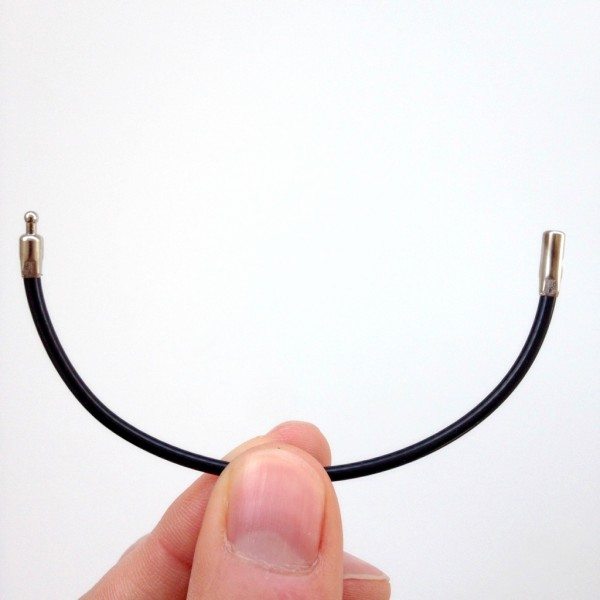
Once unlocked, keys or other items can be loaded onto Flex-O-Loc. Then reverse the process described above to lock it closed.
Conclusion
I’ve only been using Flex-O-Loc for a few weeks, but so far I like it. It hasn’t unlocked spontaeously yet, and it’s quick and easy to add or remove keys or other items from it. Plus, it’s cheap and comes in multiple colors. What’s not to like?
Update 04/18/15
Flex-O-Lock is exactly what I had been looking for in a keychain for a long time. I still use it today and am looking for more of them.
Source: This product was purchased with the reviewer’s own personal funds. For more information, please visit http://www.luckyline.com.
Gerber Gear 22-47162N Fast Draw Folding Assisted Opening Pocket Knife, Fine Edge, Black
(as of March 2, 2026 17:29 GMT -06:00 - More infoProduct prices and availability are accurate as of the date/time indicated and are subject to change. Any price and availability information displayed on [relevant Amazon Site(s), as applicable] at the time of purchase will apply to the purchase of this product.)Gerber Gear EVO Jr. Folding Knife - Serrated Edge [22-41493]
(as of March 2, 2026 17:29 GMT -06:00 - More infoProduct prices and availability are accurate as of the date/time indicated and are subject to change. Any price and availability information displayed on [relevant Amazon Site(s), as applicable] at the time of purchase will apply to the purchase of this product.)Product Information
| Price: | about $5 or less |
| Manufacturer: | Lucky Line |
| Retailer: | Hardware stores or various sites |
| Requirements: |
|
| Pros: |
|
| Cons: |
|

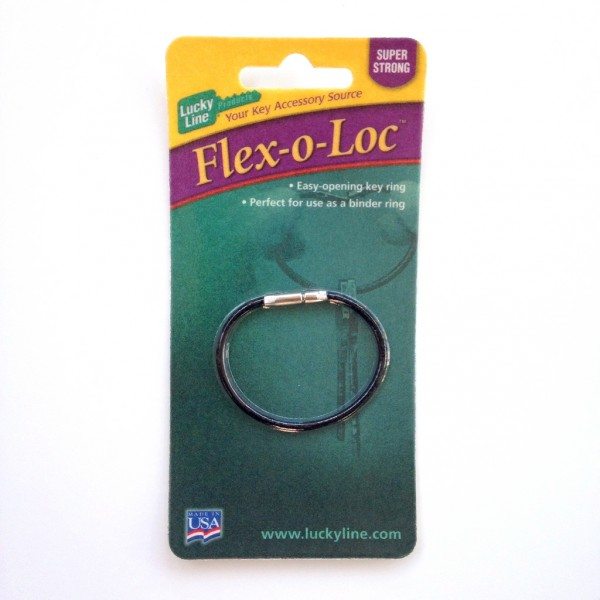
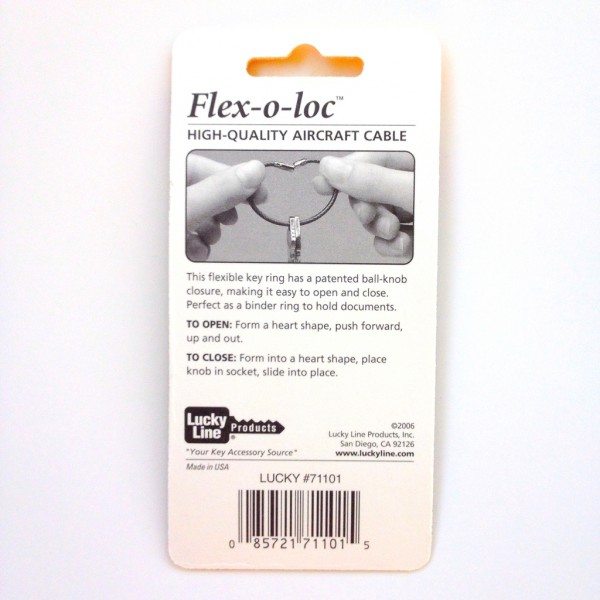
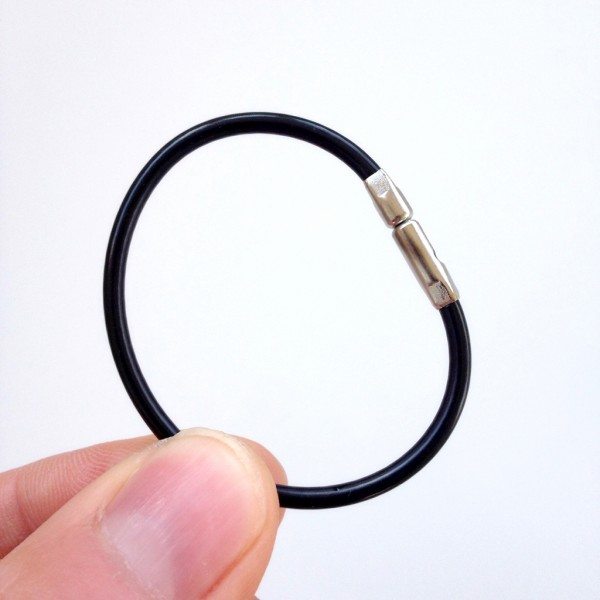
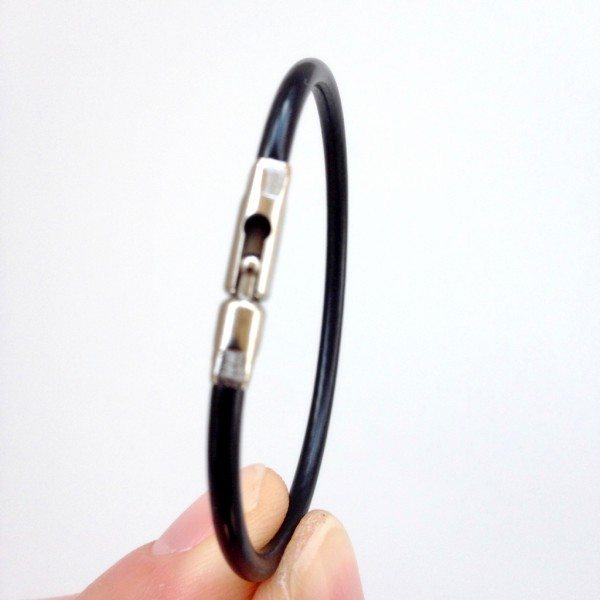
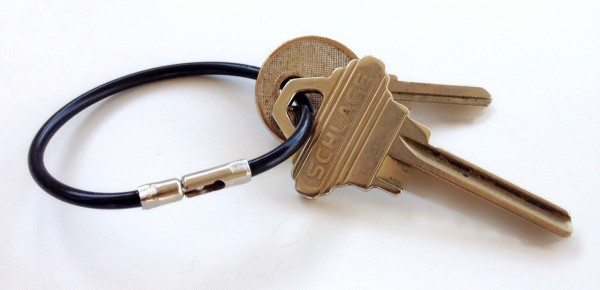


Gadgeteer Comment Policy - Please read before commenting
This one looks much easier to use than the ones I’ve used before that are a real hassle to open and close:
http://www.amazon.com/Aircraft-Cable-Keychain-Stainless-Steel/dp/B00A9OOG2A
Yep, that is the kind I was using prior to finding the Flex-O-Loc. And I agree about the hassle to open and close.
My thumbnails and I approve of this post
In Europe or Japan of course you could always instead go for the Muji minimalist keyring. 4 grams. screws together
Link to this?
marcus – Are you talking about this one?
http://www.muji.de/en/store/goods/4547315383573
If so, that is exactly the type that Julie and found difficult to use, because it screws together. I found the Flex-O-Loc to be much easier to open and close.
We have been using these since about 1990, for key-chains, tool clips and a million other things. History (as I know it). These are used to attach the flags to clips at (at least our airforce airway) for plane maintenance. “Remove before flight” http://www.aeroconsystems.com/misc/beforeflight.htm#rbf1 They got them in boxes of thousands. I had the same blue one on my keychain from around the 5th grade until I was almost 30. And it broke. Took me forever to find them again. Kept finding crappy knockoffs that didn’t hold. We used them for everything. Best keyring I ever used. I’m guessing now they sell them as a keyring we were not the only one’s that used them.
Andrew – Are you talking about the kind that where the ends thread together, or the Flex-O-Loc?
I’m talking about the ball lock. I hate the threaded one’s I bought those once in an attempt to replace the ball lock. They always opened.
I’ve been using one of these (a red one!) for about 15 years. The SAME one. I am definitely a believer!
I’ve been using one for a while and I won’t trade it for another spiral type keyring. The only problem I have is when I’m not being careful. If you don’t securely hold both ends and one gets free it dumps all of you keys off. Bummer.
I’m assuming if you don’t hold it when you OPEN it the keys go everywhere (done that) However it’s that high tension that keeps it from opening accidentally on it’s own.
I’m bewildered by the thought of the “satisfying pop” sound. It would probably be worth the cost of the device just to have something that would deliver such a refreshing experience. I’m just saying….
Well, maybe not as dramatic as a “pop” but more of a tactile feedback. 🙂